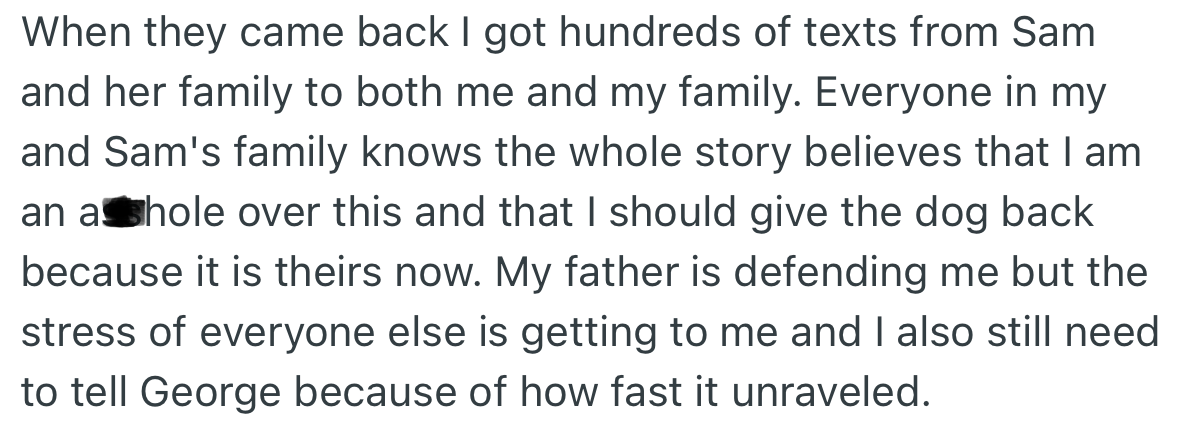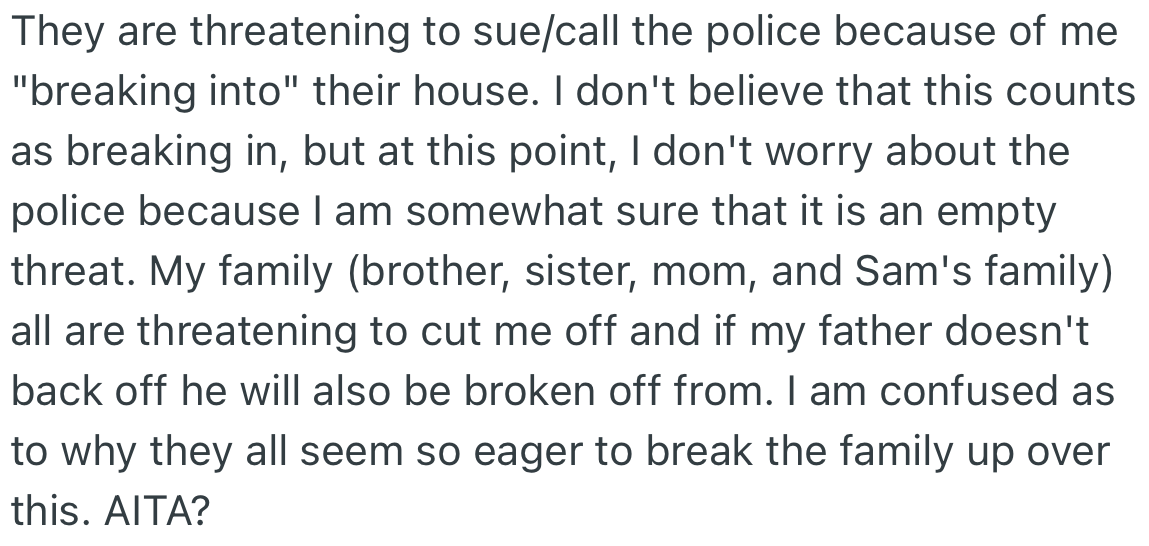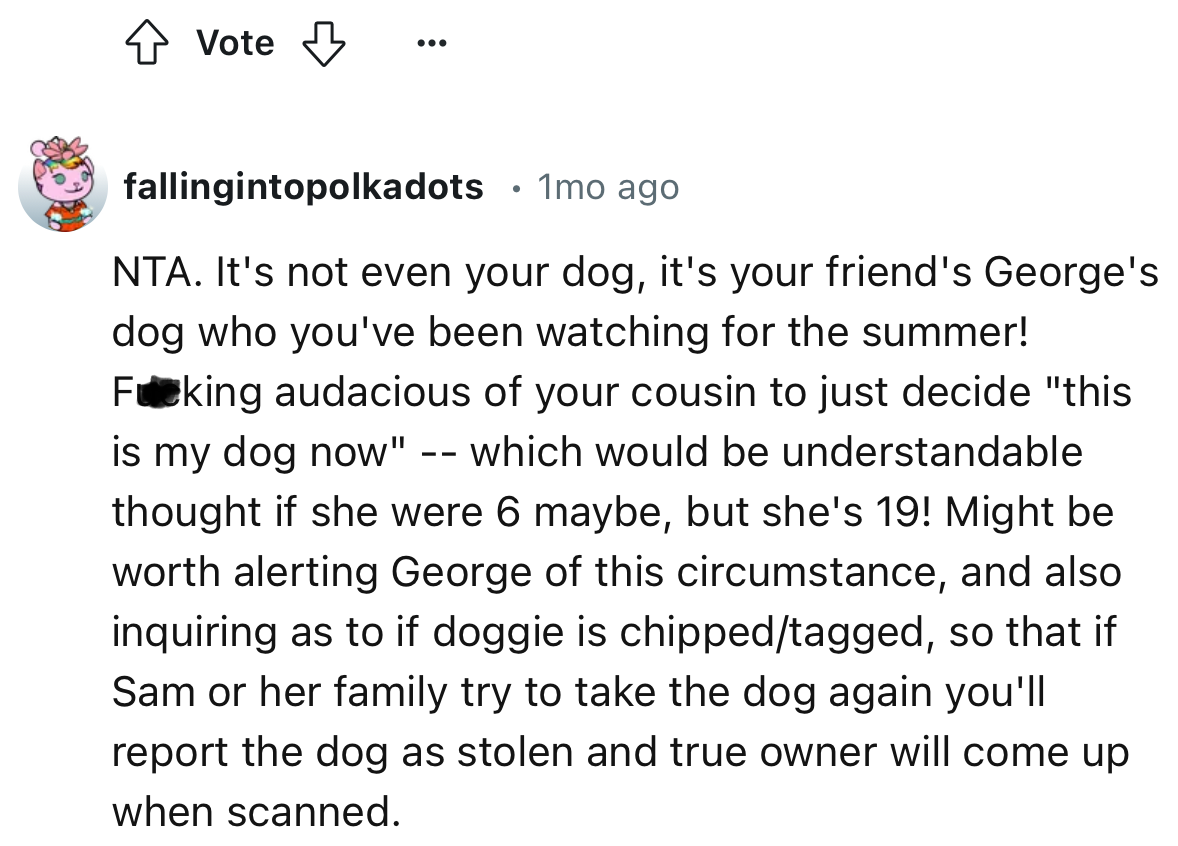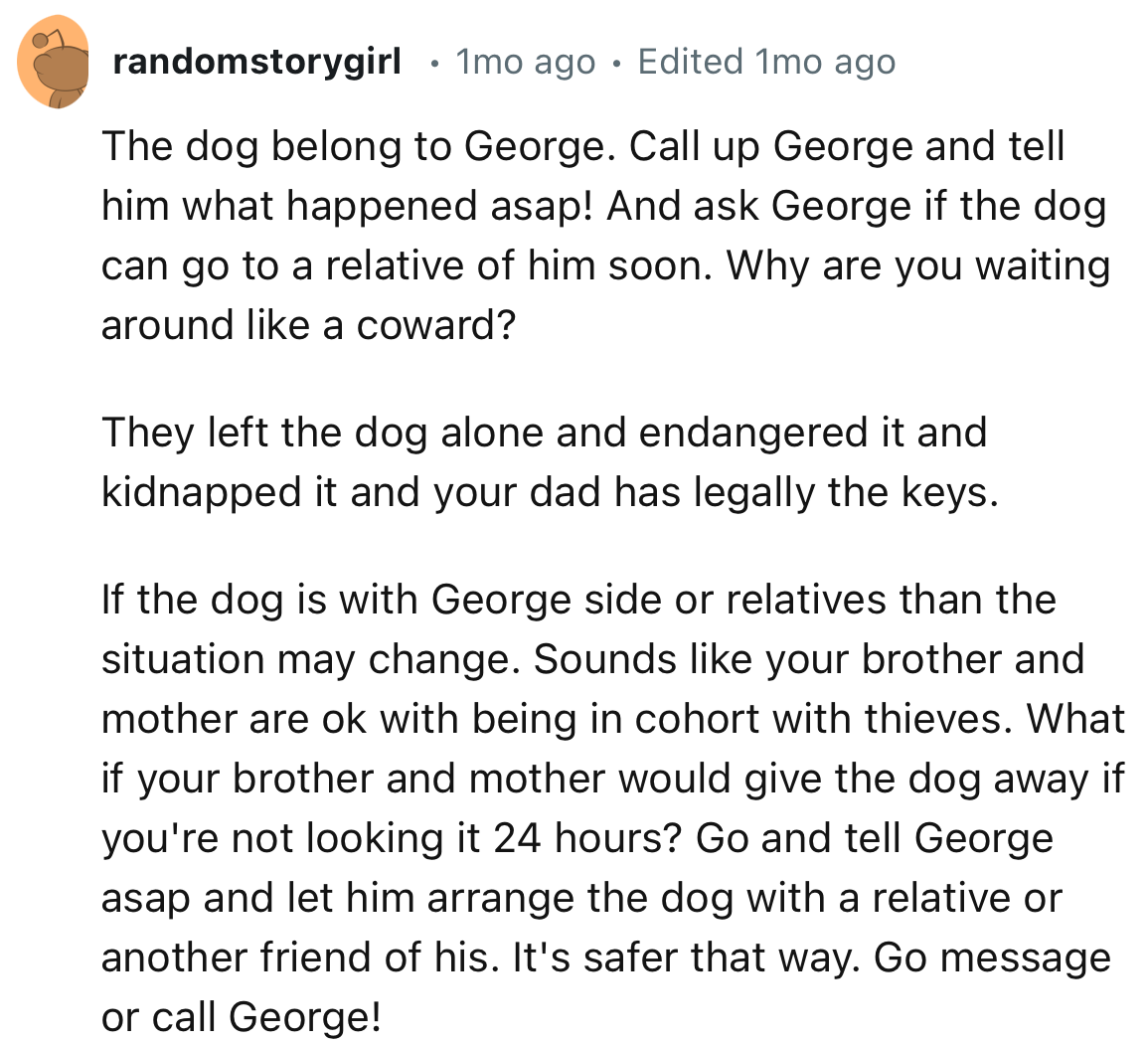Teen Lands In Hot Water After Breaking Into Cousin's House To Rescue Friend's Dog
It’s not every day that doing a simple favor for a friend turns into a full-blown family feud. But that was exactly the case for our 18-year-old narrator (Original Poster), who found himself at the center of the most bizarre canine custody battle ever.
It all started when OP agreed to take care of his buddy George's dog for the summer. He was practically a dog whisperer with years of experience under his belt, so he thought it would be a breeze.
However, life, as we know, has a way of turning the simplest tasks into dramatic sagas.
Enter Sam, OP’s 16-year-old cousin, who stepped in to dog-sit when he had to go on a four-day trip. OP returned, expecting a thank-you and maybe a few funny stories. Instead, Sam dropped a bombshell: she’d fallen head over heels for the dog and decided to keep it—forever.
She even went as far as accusing OP of mistreating the dog—a claim that had neither head nor tail. As OP’s brain struggled to process this madness, he hatched a plan.
Knowing Sam’s family was heading to the beach, he enlisted his dad (who had a spare key), to retrieve the dog. They dodged cameras like seasoned spies, unlocked the door, and whisked the dog away to safety.
The aftermath was nothing short of a soap opera. Sam’s family accused OP and his dad of theft, breaking in, and threatened legal action.
OP’s family was no better. They insisted he hand over the dog or face exile. His dad, too, was slammed with the same fate if he continued to side with OP.
It seemed crazy to OP that they would risk tearing the family apart over a dog that wasn’t even theirs. Was he really the villain in this story?
Let’s dig into the details

OP took care of his friend's dog, however, due to a short trip, he gave the dog to his cousin to look after it. Surprisingly on his return, his cousin refused to give him back the dog.

Impulsivity and Risky Behavior in Adolescents
Dr. Sarah Mitchell, an adolescent psychologist at Duke University, highlights that impulsivity is a common trait among teenagers, often leading them to engage in risky behaviors. Her research shows that the adolescent brain is still developing, particularly in areas responsible for impulse control, which can result in decisions that seem reckless to adults. This case of breaking into a house to rescue a friend's dog is a classic example of how adolescents may act on strong emotions without fully considering the consequences.
This impulsivity can be understood through the lens of developmental psychology, which emphasizes the ongoing maturation of decision-making capabilities during these formative years.
OP heard his cousin and her family were going out and with the help of his father, they broke into their house to retrieve the dog.

On his cousin’s (Sam) return, they called OP and rained insults on him.

Research in the Journal of Adolescent Health has shown that emotional intensity often drives teenage behavior. When faced with a perceived emergency, such as a friend’s pet in danger, adolescents may prioritize immediate emotional responses over rational thought. This can lead to actions that might seem extreme, reflecting the emotional weight of their connections with peers and pets.
Sam threatened to sue OP for the break-in.

Check out some interesting comments from the Netizens:

The Role of Peer Influence
Peer influence is another significant factor in adolescent decision-making. A psychologist specializing in youth behavior notes that teenagers are particularly susceptible to peer pressure, which can amplify impulsive actions. The desire to impress friends or conform to their expectations can lead to risky choices, such as breaking into a home.
Understanding this dynamic is essential for both parents and educators as they guide adolescents toward healthier decision-making.
“The dog belong to George. Call up George and tell him what happened asap!”

“ Beef up security at your own home.”

Additionally, fostering a sense of responsibility in adolescents can mitigate impulsive behaviors. Experts recommend involving teens in discussions about the potential consequences of their actions and encouraging critical thinking. This approach can help them develop a more nuanced understanding of the impact of their decisions on themselves and others.
“She stole your friend’s dog? how is anyone thinking thats ok?”

“They do realize that is actual theft, right?? And the dogs owner could press charges.”

In the grand saga of teenage summer dramas, this one definitely takes the cake. Redditors were as confused and appalled as OP was. It seemed everyone had conveniently forgotten the dog had an actual owner.
The consensus was a rock-solid NTA verdict. As for George’s dog? Well, let's just say it might need a vacation of its own after all this drama.
What do you think about this story? Let us know in the comments.
“Let them call the cops. It'll be fun watching them explain stealing a dog from someone else.”

“You should never never never had agreed to look after the dog while planning to go on a 4 day trip and leave the dog with another person.“

Strategies for Encouraging Safe Decision-Making
To promote safer decision-making among adolescents, parents should encourage open discussions about emotions and responsibilities. Creating an environment where teenagers feel comfortable expressing their feelings can foster better judgment in high-pressure situations. Workshops on emotional intelligence and impulse control can also equip teens with the tools they need to navigate challenging situations more effectively.
Moreover, role-playing scenarios can help adolescents practice making thoughtful decisions in a safe setting.
“Your relatives are interesting people.“

Psychological Analysis
This incident reflects the impulsive nature often seen in adolescents, driven by emotional intensity and peer influence. It's essential for parents to understand these dynamics and engage in open dialogues with their children about the consequences of their actions. Encouraging responsibility and critical thinking can help guide teens toward safer choices in the future.
Analysis generated by AI
Analysis & Alternative Approaches
Understanding the complexities of adolescent behavior is crucial for guiding teens through impulsive decisions. Research shows that fostering emotional awareness and critical thinking can significantly improve their decision-making skills. By providing supportive environments, parents and educators can help adolescents navigate the challenges of their developmental stage more safely.



